Researchers from CITE Central and Michigan state have come together with CUNY Ed faculty research associates and practitioners to understand faculty’s beliefs and values around computing-integrated teacher education, and how their curricular designs leverage digital and computational literacies and operationalize equity to support teacher candidate learning and practice of teacher education content and skills.
If you are a faculty member in the CITE initiative, please use this consent form to participate in the study and learn more here!
The student consent form can be found here [forthcoming link]
Findings will be shared with the broader computing and digital literacies education communities in scholarly and practitioner-focused publications, at conferences, and will be used to inform the CITE initiative moving forward.
Research Questions / Goals
Answering the following research questions will contribute to the broader knowledge base about how faculty and teacher candidates conceive of computing-integrated teacher education. Our study will also inform the CITE initiative, specifically by helping implementation teams operationalize computing, equity in design, and designing for content so they can better understand what they are hoping to integrate into teacher education and why.
Research Questions about Faculty
- To describe artifacts: How do faculty members’ designs integrate computing and digital literacies into teacher education?
- How do designs operationalize computing and digital literacies?
- How do designs operationalize equity, if at all?
- How do designs frame the relationships/connections between content areas and computing/digital literacies?
- To understand faculty priorities: What do faculty members prioritize in the design of computing-integrated lessons/activities?
- To understand faculty rationale: What are faculty members’ stated rationale for those priorities?
- To understand faculty beliefs and values: What beliefs and values are indexed in faculty rationales and designs?
- These might include values and beliefs about students, content, learning, computing/digital literacies, equity, teacher education, broader impacts
Research Questions about Teacher Candidates
- Attitudes/Beliefs
- How do teacher candidates perceive their self-efficacy in computing and digital literacies, and how do these perceptions influence their motivation and willingness to integrate these literacies into their core instruction?
- How do teacher candidates perceive their self-efficacy related to integrating CDLs into their core instruction?
- What are pre-service teachers’ attitudes and beliefs towards the role of CDLs in their future classrooms (to support student learning)?
- Equity-focused questions
- What roles, if any, do pre-service teachers believe that integrating computing and digital literacies into their instruction could play in supporting equitable learning in their classrooms?
- How are pre-service teachers operationalize and design for equity when they integrate CDLs into their instruction?
- Content-focused questions
- How do pre-service teachers’ conceptions of CDL inform their design of classroom artifacts?
- What connections, if any, do pre-service teachers make between CDLs and content/subject areas?
- Experience
- How do students perceive their participation in CUNY CITE activities and assignments?
- What are the experiences and attitudes of teacher candidates towards technology in their personal lives and learning?
- What factors do teacher candidates experience as barriers and facilitators when using technology in their personal lives and for learning?
- How, if at all, might these experiences and attitudes shape their perceptions and use of technology in their future teaching practice?
2022-2023 CITE Faculty Associates
The following Faculty Associates were instrumental in laying the groundwork for CITE during the initiative’s first year!
Daisuke Akiba, Associate Professor
Daisuke Akiba is an acting Chairperson in the School of Education at Queens College, with joint appointments to programs in Urban Education and Educational Psychology at CUNY Graduate Center. Akiba received doctoral training in an Experimental Psychology setting at Brown University, studying Social Cognition–based upon which he expanded his area of expertise to include Developmental Psychology.
David Crismond, Associate Professor
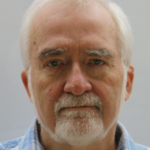
David Crismond is an Associate Professor at the City College of New York’s School of Education, and has a courtesy appointment with CCNY’s Grove School of Engineering. After 11 years as a classroom teacher, he earned an MS from MIT’s mechanical engineering department and an EdD in human development and psychology from Harvard’s Graduate School of Education. At City College, he teaches elementary science and engineering methods courses for pre- and in-service teachers, an inquiry and writing seminar for freshmen where students use design thinking to plan their college and vocational careers, and an Introduction to Engineering course at the School of Engineering. His research interests include K–16 integrated STEM teaching and learning, the use of high quality instructional materials to support STEM concept building and computational thinking in the context of doing hands-on science investigations and design activities. He and colleagues have developed and use a framework that outlines key dimensions of students’ informed design thinking, and which catalogs a wide range of teaching strategies that can help build engineering pedagogical content knowledge in teachers.
Laura Gellert, Associate Professor
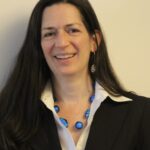
Dr. Laura M. Gellert is an Associate Professor and currently the chair of the Department ofTeaching & Learning at The City College of New York. She has taught all levels of mathematics from elementary to college mathematics. She has worked in partnerships with schools throughout the years beginning as a MetroMath Graduate Fellow at the CUNY Graduate Center working with the New York City Mathematics Teaching Fellows. Research projects included a study on inclusive practices in 4th and 5th grade ICT mathematics classes, the impact of professional development on mathematics instruction and the development of a mathematics teachers’ identity through a community of practice. Laura has developed professional development workshops for the NYCDOE STEM institute. She has developed, created, and implemented a course for mathematics education students that focuses on current policies and reforms that affect the teaching and learning of mathematics. Most recently, she has been involved in developing the Elementary Mathematics Education Leadership Master of Science in Education (MSEd) program at City College.
Laura Scheiber, Adjunct Assistant Professor

Educator and advocate with authentic commitment to empowering young people, Laura Scheiber is an Adjunct Assistant Professor in the Department of Behavioral Sciences at Kingsborough Community College. Her areas of expertise span learner-centered social justice education, sociology of education, equity and education, youth participatory action research, youth media education, and learning communities. She also REALLY loves dogs.
Linda Tribuzio, Adjunct Assistant Professor
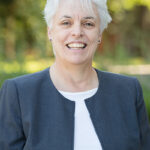
Linda Tribuzio has been an educator at the college level for over 20 years. Her areas of interest are special education and urban education. She is an Adjunct Assistant Professor at Kingsborough Community College.
Line A. Saint-Hilaire, Associate Professor
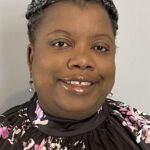
Line A. Saint-Hilaire is a science educator in the Elementary and Early Childhood Education Department at Queens College, CUNY. Line received her doctorate degree in Chemistry (with a chapter of her dissertation on science education) and did a post-doc on Science Education at the Graduate Center, CUNY. Her research interests focus on broadening participation in STEM and promoting equity in STEM teaching. Her primary scholarship goal is to help teachers understand how culture impacts the learning of science and to develop a mechanism by which cultural capitals can be utilized to promote better teaching and learning environment for greater dispositions towards science. Her secondary goal is to facilitate the integration of Computational Thinking across elementary curricula and training teachers on how to integrate it in their teaching practice, fostering an educational climate in which thinking skills are promoted among children, regardless of their cultural backgrounds and socioeconomic statuses.
Maria Savva, Associate Professor and Director of the International Studies Program

Maria Savva is an Associate Professor and Director of the International Studies Program at LaGuardia Community College. She has over 25 years of teaching experience in K-12 and post-secondary settings both in the United States and abroad. Her research interests include the study of virtual exchange models as pedagogical tools, the intercultural development of educators and methods for teaching culturally and linguistically diverse learners. She is a New York State certified teacher and also holds Qualified Teacher Status in England and Wales. Her scholarly work is available at https://cuny.academia.edu/MariaSavvaPhD
Marta Cabral, Assistant Professor

Marta Cabral works with people of all ages exploring play & art materials, processes, and ideas in diverse settings. Marta’s 20+ years of teaching young children inspire her work in teacher-education and research on ownership of learning, pedagogies of listening, and art-based learning. As an Assistant Professor at the City University of New York, Marta works with future classroom teachers. As speaker and consultant, Marta works with organizations to create and strengthen artistic engagement worldwide.
Melissa Garcia, Assistant Professor
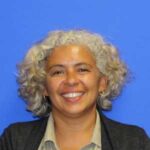
Melissa L. García Vega teaches at CUNY – Lehman College. Her research interests examine Children’s literature with emphasis on the Caribbean region, multilingual learners, and the global context.
Michelle Fraboni, Assistant Professor
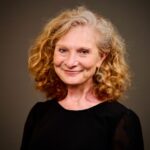
Michelle Fraboni is an Assistant Professor in the Department of Elementary & Early Childhood Education at Queens College of the City University of New York (CUNY), where she teaches digital literacy and other courses to aspiring teachers. Her teaching aligns closely with her research, which focuses on preservice teachers developing knowledge of and attitudes about their learning of computational thinking concepts and digital literacies. With a focus on creating welcoming learning spaces, Dr. Fraboni has guided many learners to become literate users of digital tools over the years, working with elementary, middle school, and college students. She spent more than ten years working with the Center for Teaching & Learning (CTL) at Queens College, providing QC faculty opportunities to enhance their teaching in online and face-to-face environments. Serving as Associate Director for two years and as Director for five, Dr. Fraboni and her CTL colleagues guided 1500 QC faculty in converting over 3000 in-person course sections to online/remote courses in March 2020, at the start of the COVID-19 pandemic. She earned her doctorate from Columbia University Teachers College in Instructional Technology & Media. A Minnesota native, she has lived in Queens for many years and considers herself an honorary New Yorker.
Nadia Stoyanova Kennedy, Associate Professor
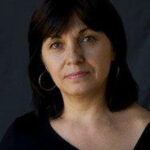
Nadia Stoyanova Kennedy is an Associate Professor in Mathematics Education in the Department of Mathematics at the New York City College of Technology. She directs the Mathematics Education program and has the privilege of working with future NYC mathematics teachers. Her research interests are in philosophy of mathematics education, dialogic teaching, teacher professional identity and teacher professional learning.
Sunyata Smith, Assistant Professor

Sunyata Smith is an Assistant Professor in the Middle and High School Science Education Department at Lehman College, CUNY. She has a PhD in Microbiology and Immunology from Albert Einstein College of Medicine and over 15 years of scientific research experience. Due to her deep abiding belief that proper education is key to unlocking the door of inequality, in 2012 Dr. Smith transitioned from a scientist into the field of education through the vehicle of Teach for America (TFA). As a TFA corps member Dr. Smith taught science in under-resourced public schools in Harlem and Brooklyn before joining the Middle and High School Education Department at Lehman College.
William H. Carr, Associate Professor

William H. Carr, D.V.M., Ph.D., Professor with Tenure, joined the Biology Department of Medgar Evers College, CUNY, in 2012. He received his B.S. in Zoology/ Russian (Duke University), D.V.M. (N.C.S.U. College of Veterinary Medicine), and Ph.D. in Immunology (Stanford University). He has over 30 publications in peer-reviewed journals in HIV pathogenesis. His research interests also include educational strategies to increase learning outcomes among under-represented minority undergraduate students in STEM fields. He is currently a CUNY STEM Pedagogy Institute Fellow in Computational Methods 2022-2023. He also serves on the American Association of Immunology Education Committee 2019-2022, and contributes active learning exercises to Parham Immunology and Immunobiology textbooks published by W.W. Norton.


